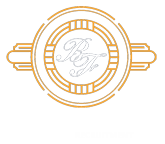
Interview preparation guide
The challenge for you as a job seeker is ensuring that you are representing yourself in the best possible way to a potential employer, so ensuring that you are well prepared for an interview will be the difference between successfully securing the job or not.
The main objective of an interview is trying to build the best potential relationship you can with the interviewer in a short amount of time. You want to stand out from the crowd and demonstrate that you would be a great cultural fit for the organization and the specific role available.
When conducting interviews, most employers want to find out what kind of person you are and need you to be able to demonstrate this in the short period of time. In our day and age, a lot of hiring managers classify interpersonal skills as a deal breaker. Yes of course your technical skills are important, but equally – so are your interpersonal skills. Having strong social and interpersonal skills ensures the hiring manager that you have what it takes to build lasting relationships with a diverse range of colleagues and clients.
There are 4 key areas that you need to focus on when preparing for an interview:
- Know your CV
Knowing your CV means that you need to be able to provide very specific details about anything and everything that you have written down. Most interviewers use this as a platform for the questions they will ask you as this method helps the interviewer determine your credibility and your written claims. You need to be able to provide examples of every aspect of your role and give a clear answer of what it involved and the ways in which it was completed or processed. Practical examples are always very helpful when trying to engage the interviewer and helps paint a very clear picture of what you were doing. Although you may feel like some responsibilities or tasks are tedious, it is important to remain confident when explaining them.
- Research the background of the company
Conducting research about the company you are about to interview for sounds very obvious, but you would be surprised with the amount of candidates who attend an interview and are completely unaware of the firm’s background profile.
There are 2 key advantages of conducting research:
Firstly, you are more than likely to be going up against some excellent candidates who have spent hours researching the backgrounds of the employers, background of the firm, industry trends and competitors, so simply reading the “about us” page is not going to cut it. You need to demonstrate some facts about the company and show them that you have completed sufficient research. Reading over their linked in profiles, and studying their backgrounds is a great way to demonstrate this.
Secondly if the interviewer was to ask you “what do you know about the company” and you do not have a satisfactory response, not only have you just cost yourself the job, but you have completely wasted both parties time.
- Prepare questions for the interviewer:
When conducting interviews, most employers want to find out what kind of person you are and need you to be able to demonstrate this in the short period of time. In our day and age, a lot of hiring managers classify interpersonal skills as a deal breaker. Yes of course your technical skills are important, but equally – so are your interpersonal skills. Having strong social and interpersonal skills, ensure the hiring manager that you have what it takes to build lasting relationships with a diverse range of colleagues and clients.
There are 3 reasons as to why preparing questions for the interviewer is so important:
3.1 It shows that you are interested in the company and in the job.
If you really want the job, you are going to have questions that you want answered. Unless you are sitting across from a mind reader, your interviewer isn’t going to know what you are thinking, so it is up to you to ask! I always advise to take in a sheet of paper with pre written questions on it so that in the heat of the moment you don’t forget.
3.2 It shows that you are knowledgeable.
This is where all of the pre interview research about the company comes into play. This is the perfect time to demonstrate that you are well educated and have conducted your research about the company. For example if you know that they have just been mentioned in the press for merging with another firm and increasing their fee base, show that you have been paying attention by bringing it up and asking how their clients have responded to it.
3.3 It demonstrates your interpersonal skills.
This is the perfect time to stand out from the crowd. Yes your technical skills are important, but equally – so are your interpersonal skills. Having strong social and interpersonal skills ensure the hiring manager that you have what it takes to interact with a diverse range of people, and are often a critical factor to strong performance.
- The reason for leaving your current job
“Why do you want to leave your job” is one of the most frequently asked questions in an interview so you want to make sure that you are well prepared. Interviewers will ask this question to ensure that this will not occur at their company or alternatively make sure they are able to provide this for you. There are many reasons for why people change jobs and there is no right or wrong answer so being open and honest is the best way (without speaking poorly about your current employer).
Below are some of the most common reasons why people leave their jobs:
- Career progression
- Work-life balance
- Training and development
- More responsibilities
- Company culture
- High turnover
- Skill stagnate
